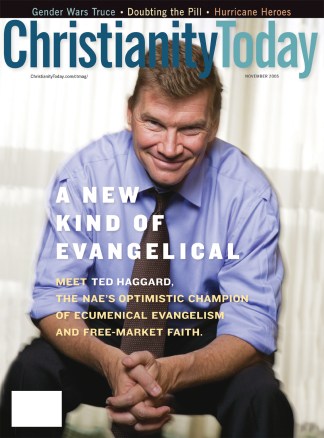| • |
The Christian Legal Society’s (CLS) national effort to gain recognition at universities and law schools scored two victories late this summer. Some schools have refused to recognize CLS and other Christian groups, saying the organizations’ membership requirements violate campus nondiscrimination policies.
In a September out-of-court settlement, Arizona State University agreed that CLS can require official members and officers to share a set of religious beliefs. It also said that CLS can bar individuals whose behavior violates those beliefs—behavior such as being sexually active outside of marriage. A CLS lawsuit brought against the university in 2004 challenged the college’s position that club membership cannot be denied on the basis of religion or sexual orientation. ASU agreed to the settlement a week before the case was scheduled to go to court.
Two weeks earlier, in mid-August, the Seventh Circuit Court of Appeals delivered a preliminary injunction in a similar case. It ruled that Southern Illinois University must officially recognize the CLS group. CLS has prevailed in every case of this kind that it has contested, including cases at Ohio State University and Pennsylvania State University, according to CLS attorney Casey Mattox. He said CLS is in pre-litigation discussions with several other schools.
The ASU settlement “will enable not only us, but also every religious group, Christian or otherwise, to have a presence at the university,” Mattox said.
Arizona State spokesperson Terri Shafer said CLS still must abide by the institution’s nondiscrimination policy, but it can organize on the basis of religion.
“Under the agreement, we can make a distinction between [sexual] orientation and behavior, which is what we asked for in the lawsuit,” Mattox said. “We are not discriminating, because we won’t allow any members who are sexually active outside marriage, whether homosexual or heterosexual.”
The Christian Legal Society has groups comprising attorneys, judges, law professors, and law students across the United States, including 125 campuses.
InterVarsity Christian Fellowship (IVCF) has faced similar challenges on some campuses. According to legal counsel Ralph Thomas, IVCF has to seek exemption from nondiscrimination policies eight to ten times a year. IVCF prevailed in a visible battle for reinstatement at Rutgers University in April 2003.
Copyright © 2005 Christianity Today. Click for reprint information.
Related Elsewhere:
The Christian Legal Society has more information about the Arizona State lawsuit and the Southern Illinois University suit.
The Chronicle of Higher Education also reported on the suit: Arizona State U. Allows Christian Group to Bar Gay Members.
CT covered other campus Christian groups that have fought to maintain status as official campus groups.










